
- Samhita Revolving Grants Warli :
The objective of the partnership between CGF and Tisser is to provide capacity building and working capital to the women micro-entrepreneurs affected by COVID-19 to help them REVIVE their livelihoods and augment their incomes. These artisans were previously members of SHGs, which now have been formalized under producer groups.
Year : 2021 onwards
- Number of Women producer groups identified- 10
- Number of women artisans/beneficiaries in 1 cycle – 200
- Number of direct beneficiaries targeted for 4 cycles- 1000
- Number of indirect beneficiaries targeted- 5000 (1:5 ratio of direct to indirect beneficiaries)
- Profile of beneficiaries- Providing training to bottom-of-the-pyramid women in the peri-urban
- Locations in and around Thane district, Mumbai; Covering specifically the blocks of Bhiwandi, Ambernath and Kalyan (with a population of >5 lakhs).
2. Gram – Grassroots Rural Artisans Movement
The Maharashtra Startup Week is an effort to encourage, engage and enable the state’s entrepreneurial ecosystem. It provides startups with a platform to showcase their innovative solutions to the Government of Maharashtra.
Startups from sectors such as education, skilling, healthcare, agriculture, clean energy, environment, water and waste management, smart infrastructure and mobility, governance, and miscellaneous are invited to submit their applications.
With the help of multiple ecosystem partners, the top 100 startups are selected to present their solutions to an esteemed panel of judges comprising representatives from the government, industry, academia, and investors. During the week-long event, startups from each sector make their pitch to a panel consisting of senior government officials, industry experts, academicians, and corporate partners.
The best 24 are selected as winners. Winners receive work orders of up to Rs 15 lakh. from the Maharashtra State Innovation Society to pilot their solutions within different state departments. Subsequently, the startups receive support in terms of access to government machinery and mentoring from their institutional partners for a period of up to 12 months to deploy their solutions on the ground.
The participating startups also get access to multiple other benefits such as cloud credits, access to multiple events, and connections with ecosystem players such as mentors, investors, etc.
Partners
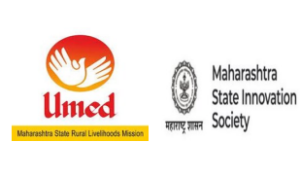
Clusters:
Pottery: At Ratnagiri cluster various products range are developed and designed by women. The products include Wall hanging, Fridge magnets, Planters, etc. These are the wall hanging terracotta, which is glazed with different colors and painted with warli art to enhance the product with a traditional look.
The main objective of designing new products is to develop a contemporary designing technique in which women can learn other than typical products which there in the market in order to reach a larger audience and compete in the industry. Another product develop is Table terracotta planter, Hanging planters, and fridge magnet.
Beautiful round shape planters are suitable for indoors as well as outdoors. Uniquely designed Fridge magnets and other home décor products made of terracotta, adding life to the surroundings which are environment friendly.
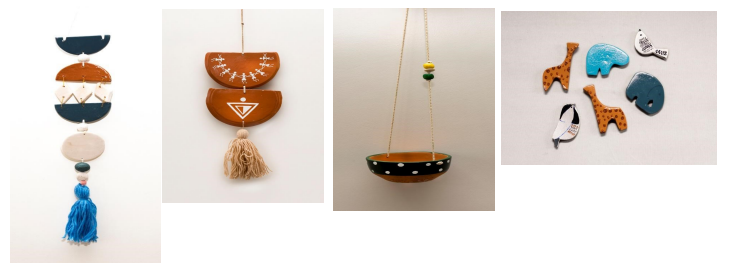
Warli: Warli painting is a style of tribal art mostly created by the tribal people from the Sahyadri Range in India which encompasses the Palghar district. This tribal art originated in Maharashtra where it is still practiced today. Our clusters in Saphale, Palghar District are trained to use Warli art on contemporary products.
The products that are made by women through basic and advanced training are the perfect blend of beauty, functionality, and eco-friendly handmade product. The traditional warli art over the products enhances the beauty of the product.
All the products that are produced by the women beneficiaries are done with proper design input from the professional product designer which contributes to the uniqueness and diversified product.
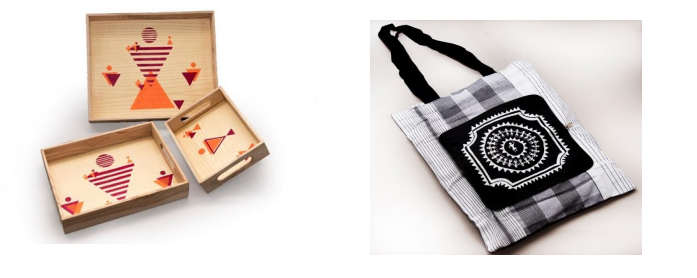
Tussar Handloom Cluster : Tussar weaving is done by Koshti Community Tassar in the Bhandara district of Maharashtra which is one of the clusters under the Gram project.
Tussar silk is called Kosa in Sanskrit. The varieties produce in Tussar weaving are Mothe Chaukada, A design in a big square, and Lahan Chaukada, A design in a small square. Our team collaborated with these clusters and utilized their Tussar silk production in making Tussar silk sarees and apparel.
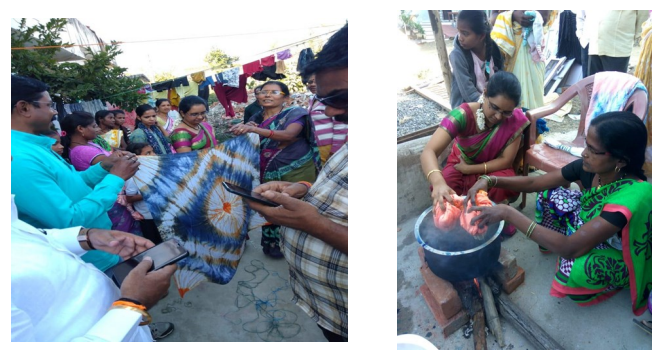
Case Studies :
Case study 1: Archana Vanve: “I am a member of Reshim Band Cocoon Thread Production Organisation. In October 2019, Tisser came to us with new innovative designs for Warli painting. We did Warli painting on cloth and Waghamre Sir guided us which helped in learning the craft quicker.
Not only Warli painting but we learned the techniques for Stencil printing also. It is a very sensitive work that requires a lot of patience. But we enjoyed it and it was great to learn something new.”
Case study 2 : Kunda Borkar: “I am Kunda Borkar, a resident of Andhalegaon in Bhandara. Between the 1st and 5th of October 2019, trainers from Tisser gave us training on Warli painting and Tie & Dye. I never knew that I had some hidden talent in me due to which I will be able to earn an income as well. I was more than happy to join these workshops.
I, along with fifteen other women, created 170 stoles, and that too in four days. I want to thank Waghmare Sir, and Pratiksha Madam for their continued support and encouragement. They really helped us in bringing out our creative side.”
Case study 3 : Manisha Shende: “I am Manisha Shende from Bhandara. I am associated with Reshim Bandh Cocoon Production Organisation. In October 2019, Tisser conducted Warli painting workshop and provided training. Along with Warli painting, we got a brief on Tie & Dye. Waghmare Sir, Pratiksha Madam, and Pritam Madam conducted training smoothly and we were able to grasp it soon.
I was really happy to receive the training as it made me independent and increased my self-confidence. I would like to thank Tisser for approaching our area for such good and respectable work. I look forward to gaining more knowledge about this and so that the production, which is on full speed now, increases manifold.”
Commercialization of Biofertilizers
“Organic fertilizer” means Environment :
- substances made up of one or more unprocessed material(s) of a biological nature (plant/animal) and may include unprocessed mineral materials that have been altered through the microbiological decomposition process.
- “Bio-fertilizer” means the product containing carrier-based (solid or liquid) living micro-organisms which are agriculturally useful in terms of nitrogen fixation, phosphorus solubilization, or nutrient mobilization, to increase the productivity of soil and/or crop
- “Biopesticides” are biological pesticides that are naturally occurring and control pests by nontoxic mechanisms. Biopesticides can be living organisms (natural enemies) or their products (phytochemicals, microbial products) or byproducts (semiochemicals) which can be used for the management of pests that are injurious to plants.
- “Biostimulant” means a substance or microorganism or a combination of both whose primary function when applied to plants, seeds or rhizosphere is to stimulate physiological processes in plants and to enhance its nutrient uptake, growth, yield, nutrition efficiency, crop quality and tolerance to stress, regardless of its nutrient content, but does not include pesticides or plant growth regulators which are regulated under the Insecticide Act, 1968
Urban Slums
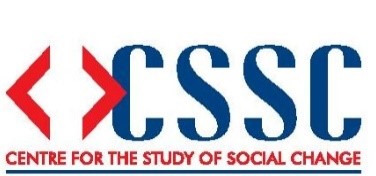

WISE Women : Incubation, Skilling & Entrepreneurship
Center for Women: Incubation, Skilling & Entrepreneurship.
- Developed a sustainable business model for supporting women in slums to be part of the creative craft industry
- Focused only on Women and a special focus on vulnerable sections.
- Supporting 5 SDGs :
- Goal 1: No Poverty
- Goal 3: Good Health and Well-being
- Goal 5: Gender Equality
- Goal 8: Decent Work and Economic Growth
- Goal 10: Reduced Inequality
- Goal 11: Sustainable Cities and Communities
- Goal 17: Partnerships to achieve the Goal
Incubation :
Nurture and grow women for new and small businesses by supporting them through the early stages of development and change.
- A business incubator at the Centre will be a workspace created to offer startups and new ventures access to the resources they need, all under one roof.
Skilling
Entrepreneurial skill development for sustainable business.
- Support women to learn marketable skills and connect with income opportunities
Entrepreneurship :
Enhance entrepreneurial knowledge and skills via structured programs
- Increase the knowledge and skill of existing entrepreneurs and encourage others
